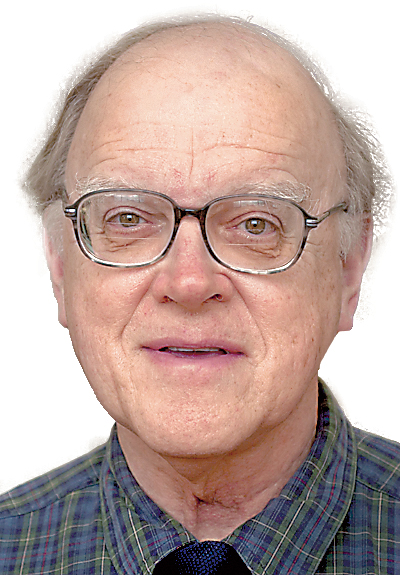Stories of bombings, kidnappings and slaughters of innocents by militants of various persuasions have become daily fare in our news cycles. Boko Harun, ISIS, home-grown racists, Al-Qaeda and psychotic people with guns kill and maim, seemingly without any restraint of conscience.
Against this background of manmade suffering stand countless people whose lives inform us of an alternative vision, of a world dominated by love. They seldom generate headlines.
Consider the life of Dr. Janusz Korczak.
On Aug. 8, 1942, this great man led his staff and his band of orphans on a final walk across Warsaw to a train that took them to the Nazi death camp at Treblinka. His life offers instruction and inspiration in a time of recurring strife.
He was born Henryk Goldszmit in 1878 into a prominent Jewish family in Warsaw. The prolonged psychiatric illness and subsequent death of his father led to financial hardship which the son addressed by tutoring for pay. While he earned his medical doctorate at Warsaw University, he gained a reputation as a newspaper columnist and writer of fiction for which he used the pseudonym Janusz Korczak, the name by which he is known to posterity.
He spent many nights touring Warsaw's poor neighborhoods, where he observed the plight of orphaned children who had been abandoned to the streets. He determined to make a difference in their lives.
After conscripted service in the Russian army in a war against Japan in 1905, Korczak began practice as a pediatrician in Warsaw's Children's Hospital, where he gained acclaim as an astute diagnostician. His ongoing contact with the city's destitute children inspired him to found an orphanage for Jewish children. The new facility, called the Children's Republic, opened in October 1912. Korczak would devote his life to the new institution and its inhabitants.
The Children's Republic fundamentally changed the concept of orphanages. Children had a full academic curriculum paired with musical, dramatic and literary activities. Every child had assigned responsibilities.
A student government formulated rules while a student judiciary dealt with infractions. Summers were spent in a camp outside the city. In Korczak's eyes, the teaching of children extended far beyond the ABCs to encompass a comprehensive moral education.
Korczak was again drafted into frontline military service by the Russian army during World War I. In addition to his duties, he established relief centers for children orphaned by battle. Near war's end, he almost died from typhus. His mother died from the disease as she nursed him back to health.
Back at the Republic, he became a tireless advocate for children's rights. He testified repeatedly in court on behalf of children who were subjected to harsh punishments designed for adults. His extensive writings on educational reform influenced schools across Western Europe. He developed and promoted a new concept of universal children's rights.
Korczak accepted the additional responsibility of establishing and directing a Catholic orphanage, based on the principles of the Children's Republic. He hosted a weekly national radiocast that dispensed practical advice on child rearing. In the mid-1930s, a rising tide of anti-Semitism in Poland led to loss of these positions.
Warsaw fell to Nazi invaders in September 1939. Between August and October 1940, 400,000 Jewish residents of the city and surrounding countryside were forcibly relocated to a ghetto of less than 1.5 square miles, surrounded by walls, barbed wire and guard towers. Starvation, disease and deportations to Treblinka steadily reduced the ghetto's population.
A year later, the area of the ghetto was further reduced. The Children's Republic was forced into progressively smaller quarters.
Despite the surrounding horrors, Korczak and his staff labored to maintain an island of love and civility within their confinement. Classes continued. Plays were staged, the last a production of "The Post Office" in late July 1942. The play deals with the courage and nobility of children.
On Aug. 8, Nazi officials ordered the forced removal of orphans from the ghetto. Rather than being dragged away, Korczak and his staff led the 150 surviving children on an orderly march to the railway station. They marched behind the green flag of the Children's Republic to which a gold Star of David had been affixed.
Before boarding the cattle cars, Korczak directed the children to tear from their coats the gold stars that identified them as Jews and cast them into the square before the station. A guard commented that the pile resembled a field of daffodils.
Dr. Korczak, his staff and children perished at Treblinka. The love and courage which they embodied survive in memorials and associations which bear the Korczak name.
The life and times of this saintly man are beautifully captured in Betty Jean Lifton's biography, "The King of Children."
Contact Clif Cleaveland at cleaveland1000@comcast.net.

